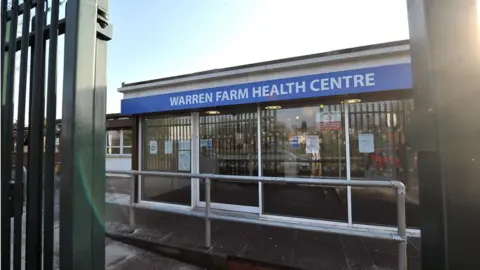Birmingham urgent care centre faces closure due to Raac
 Birmingham Mail
Birmingham MailA healthcare facility faces closure due to safety fears over the presence of collapse-prone Raac concrete.
Roof panels are currently propped up by steel beams at the Warren Farm Urgent Treatment Centre in Kingstanding, Birmingham.
NHS bosses described the situation there as "substandard".
Reinforced autoclaved aerated concrete (Raac) is a lightweight material, but is less durable than standard concrete, with a shorter life expectancy.
Proposals could see services at Warren Farm relocated to Stockland Green Primary Care Centre in Erdington.
However, if the move goes ahead, services at Stockland Green would also need to make way, with Bourne Road in Aston a possible destination, 2.3 miles away.
Councillors have said they are concerned the closure would increase pressure on the city's hospitals.
Erdington councillor Gareth Moore, who objects to the plans said: "It's just going to put pressure on Good Hope Hospital which is my concern and there's been no discussion with residents at all which is particularly concerning."
"Walk-in centres play a vital role in preventing hospital admissions and, in extreme cases, even death and services such as Warren Farm need to be easily accessible to the communities they profess to serve," added Oscott councillor Barbara Dring.
Warren Farm is currently one of six urgent care centres located in Birmingham and Solihull.
Birmingham City Council's health, adult and social care committee will now carry out a 12-week public consultation involving the potential closure of Warren Farm and the relocation of its services.
Raac is a lightweight form of concrete which has an aerated or bubbly structure.
It is less durable and has a shorter lifespan than traditional concrete and recent tests have raised fears over its reliability.

Follow BBC West Midlands on Facebook, X and Instagram. Send your story ideas to: [email protected]
